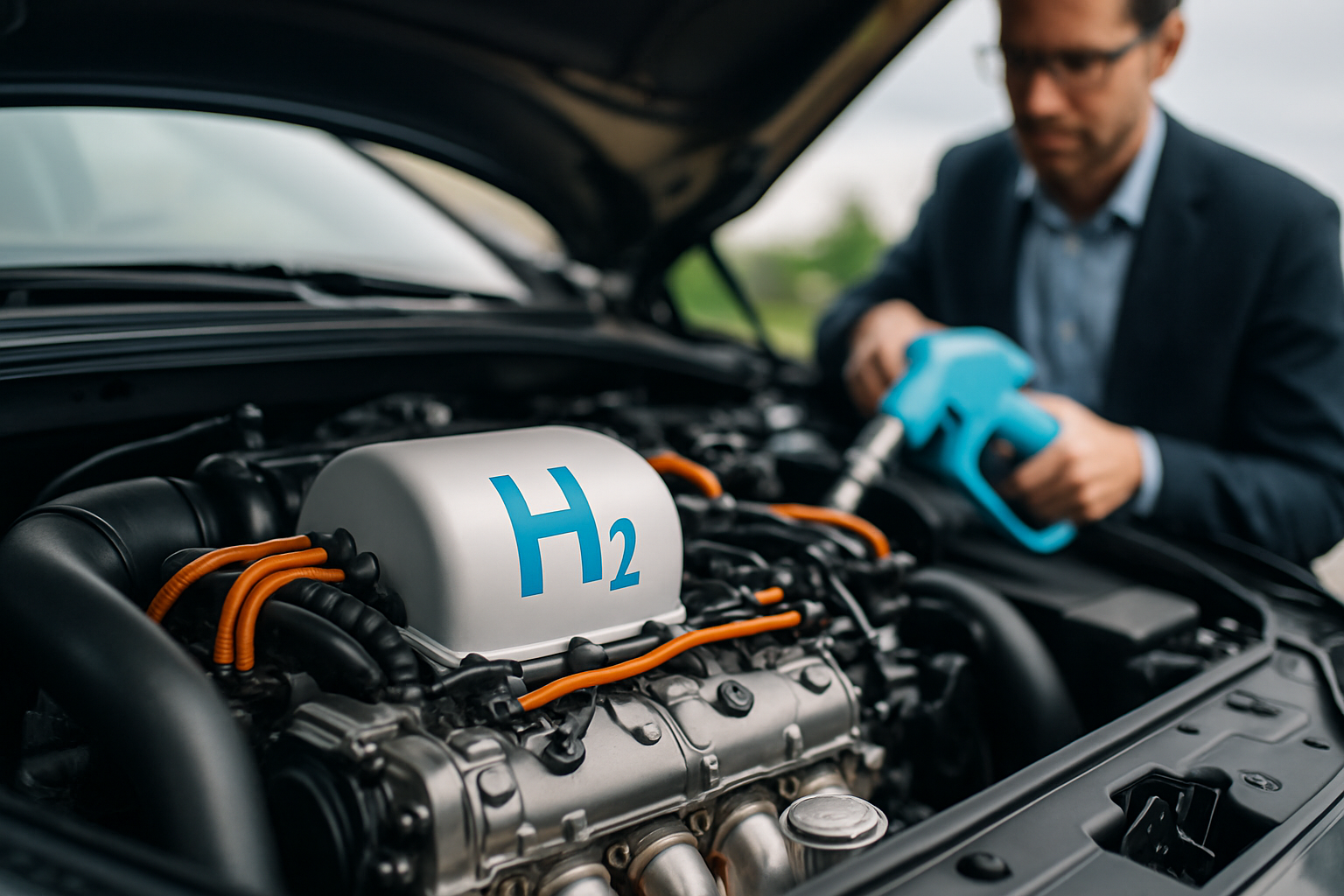Hydrogen Combustion Engines: The Next Frontier in Clean Automotive Power
In the realm of automotive innovation, a groundbreaking technology is emerging that promises to revolutionize the way we think about clean transportation. Hydrogen combustion engines, once relegated to the realm of science fiction, are now poised to become a viable alternative to traditional fossil fuel powertrains. This cutting-edge approach combines the familiarity of internal combustion with the environmental benefits of hydrogen fuel, offering a unique solution to the challenges of sustainable mobility.

The Science Behind Hydrogen Combustion
At its core, a hydrogen combustion engine follows the same four-stroke cycle as a conventional gasoline engine: intake, compression, combustion, and exhaust. The primary difference lies in the fuel itself. Hydrogen, being the lightest element, has unique properties that make it both challenging and advantageous as a fuel source. Its low density requires specialized fuel injection systems and storage solutions, but its high energy content by weight offers the potential for excellent efficiency.
When hydrogen combusts, it combines with oxygen from the air to produce water vapor. This clean reaction is the key to its appeal as an eco-friendly alternative. However, the high combustion temperatures can lead to the formation of nitrogen oxides (NOx), a challenge that engineers are actively working to mitigate through advanced engine design and exhaust treatment systems.
Overcoming Technical Hurdles
Developing a practical hydrogen combustion engine presents several technical challenges that automotive engineers are diligently addressing. One of the primary obstacles is the storage and distribution of hydrogen fuel. Unlike liquid gasoline, hydrogen must be stored under high pressure or in cryogenic form, requiring specialized tanks and fueling infrastructure.
Another significant challenge is the risk of pre-ignition and knocking, which can occur due to hydrogen’s low ignition energy and wide flammability range. To combat this, engineers are developing advanced ignition systems and combustion chamber designs that optimize the fuel-air mixture and control the combustion process with precision.
Additionally, the durability of engine components exposed to hydrogen over extended periods is a concern. Researchers are exploring new materials and coatings that can withstand the unique properties of hydrogen fuel, ensuring long-term reliability and performance.
Performance Potential and Driving Experience
Despite the challenges, hydrogen combustion engines offer exciting performance potential. The high energy content of hydrogen allows for rapid acceleration and impressive power output. Moreover, the instant throttle response and smooth power delivery characteristic of hydrogen engines contribute to an engaging driving experience that enthusiasts can appreciate.
One of the most intriguing aspects of hydrogen combustion technology is its ability to preserve the emotional connection many drivers have with internal combustion engines. The familiar sound and vibration of a running engine, albeit with a unique hydrogen-fueled character, offer a bridge between traditional automotive culture and a cleaner future.
Environmental Impact and Sustainability
The environmental benefits of hydrogen combustion engines are significant. With water vapor as the primary exhaust product, these engines dramatically reduce greenhouse gas emissions compared to conventional gasoline engines. However, the overall environmental impact depends heavily on the source of the hydrogen fuel.
Currently, most hydrogen is produced through steam methane reforming, which still relies on fossil fuels. The true potential of hydrogen as a clean energy carrier lies in green hydrogen production methods, such as electrolysis powered by renewable energy sources. As these production techniques become more widespread and efficient, the environmental credentials of hydrogen combustion engines will only improve.
The Road Ahead: Challenges and Opportunities
While hydrogen combustion engines show great promise, several hurdles must be overcome before widespread adoption becomes feasible. The lack of hydrogen fueling infrastructure is a significant barrier, requiring substantial investment and coordination between automakers, energy companies, and governments.
Additionally, the cost of hydrogen fuel production and the overall efficiency of the hydrogen energy cycle compared to direct electrification are ongoing debates within the industry. Some argue that battery electric vehicles offer a more straightforward path to zero-emission transportation, while others see hydrogen as a crucial component of a diverse and resilient energy ecosystem.
As research continues and technology advances, hydrogen combustion engines may find their niche in specific applications where their unique advantages shine. Heavy-duty vehicles, long-haul transportation, and high-performance applications could all benefit from the power density and quick refueling capabilities of hydrogen engines.
In conclusion, hydrogen combustion engines represent an intriguing frontier in automotive technology, offering a potential pathway to cleaner transportation while preserving the essence of internal combustion that has defined the automotive industry for over a century. As engineers continue to refine this technology and overcome its challenges, we may be witnessing the birth of a new era in automotive propulsion – one that marries the familiar with the futuristic in pursuit of a more sustainable tomorrow.





